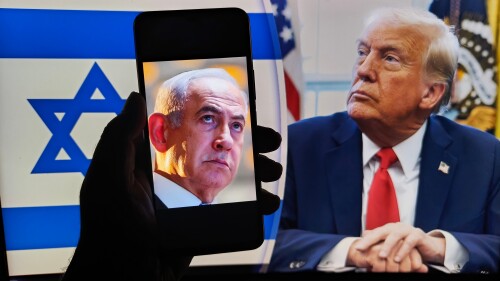As U.S. military operations in Yemen continue to degrade Houthi capabilities, Yemen’s post-Houthi future should not be a secondary concern. Yemen’s modern political history provides a cautionary note. For most of the late 20th century, Yemen existed as two separate states: the Yemen Arab Republic, colloquially North Yemen, and the Marxist-oriented People’s Democratic Republic of Yemen, or South Yemen. Their 1990 unification under North Yemen’s President Ali Abdullah Saleh masked deep political, tribal, and economic divides. Saleh’s reliance on patronage and coercion, and his marginalization of Southern Yemenis deepened resentment. The failed 1994 southern secession attempt and ensuing civil war entrenched these rifts. Although Saleh preserved nominal unity, his regime never integrated Yemen’s factions into a functional state.
Partition carries risks. Border disputes would likely erupt over oil- and gas-rich areas such as Marib and Shabwah.
The 2011 Arab Spring protests forced Saleh to resign but failed to deliver genuine reform. A power vacuum followed, enabling the Iran-backed Houthis to seize Sana’a in 2014 and dismantle the transitional government. The conflict escalated into a regional proxy war involving Saudi Arabia, the United Arab Emirates and Iran. After more than a decade of fragmentation, Yemen’s institutions are today in ruins.
Two competing visions for Yemen’s future now emerge: partition or decentralization. The Southern Transitional Council with support from the United Arab Emirates, promotes southern independence. This proposal draws on precedent and offers a simplified solution. A divided Yemen may seem easier to govern and might allow international donors to work with separate regional authorities.
However, partition carries risks. Border disputes would likely erupt over oil- and gas-rich areas such as Marib and Shabwah. Fragmentation could encourage other groups to pursue autonomy, leading to further splintering and instability. Furthermore, fear that a post-Houthi Yemen would balkanize may lead policymakers to reconsider the benefit of eradicating the Houthis who, despite their terror support, maintain control across much of northern Yemen. The chance that the Houthis might dominate a post-partition statelet also presents a risk.
A unified but decentralized Yemen would be a more stable alternative. Shifting power away from a central government toward local leaders would align with Yemen’s tribal and regional realities. Decentralization also reduces the risk of renewed conflict over central authority and enables more effective governance and reconstruction.
Preserving Yemen’s territorial integrity would also strengthen national identity while allowing communities to govern their own affairs. It would ensures more equitable resource distribution and better deny Iran a foothold in the north.
Only a unified Yemen can prevent the country from becoming a permanent vacuum for terrorism, arms trafficking, and foreign subversion.
Some critics argue that decentralization cannot succeed amid Yemen’s weak institutions and armed factions. While these concerns are valid, they describe current conditions—not the consequences of adopting decentralization. Yemen is already fragmented. A decentralized framework offers a credible path to reintegrate the country’s factions under a single national structure. Recognizing Yemen’s on-the-ground realities and building governance from the bottom up offers the a practical way forward.
Regional and international actors must act decisively to support this model. Saudi Arabia, the United Arab Emirates, Oman, and Egypt should coordinate to preserve Yemen’s territorial integrity and block foreign interference. Support for anti-Houthi tribal factions must focus on building accountable local governance while reinforcing national unity. U.S. policymakers should press for the creation of a transitional governing council that includes equitable representation from all major regions and factions. Such a structure would support inclusive decision-making and help stabilize post-war governance.
This approach directly serves U.S. regional strategy. It constrains Iranian influence, secures freedom of navigation in the Red Sea, strengthens Western-aligned partners, and counters China’s efforts to expand its maritime footprint. Only a unified Yemen can prevent the country from becoming a permanent vacuum for terrorism, arms trafficking, and foreign subversion.








